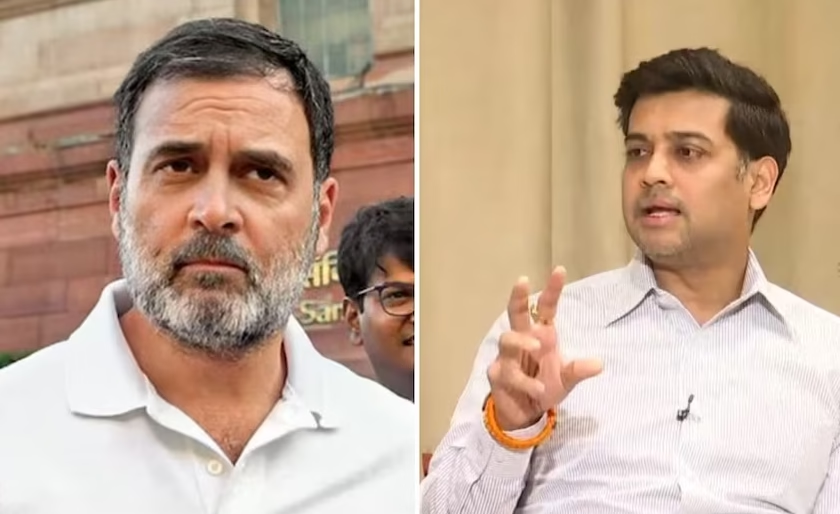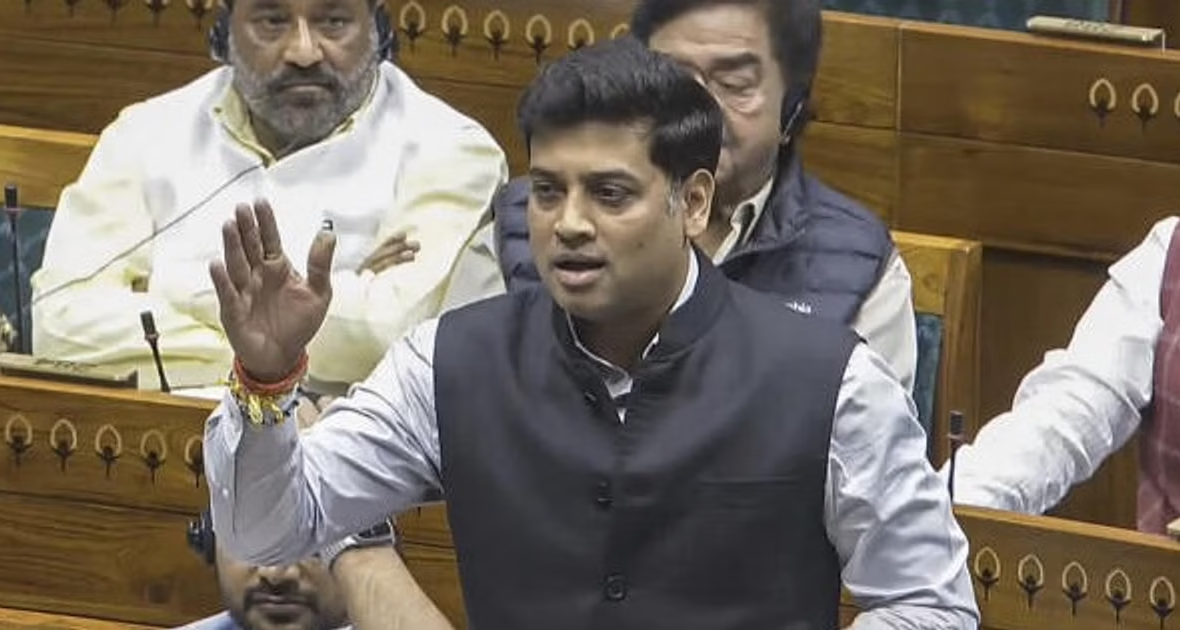Rahul Gandhi vs. Srikant Shinde: Lok Sabha’s Fiery Debate over Savarkar Remark
The Lok Sabha turned into a charged battlefield on Saturday as Leader of the Opposition Rahul Gandhi clashed with Shiv Sena MP Srikant Eknath Shinde over comments regarding Hindutva ideologue Vinayak Damodar Savarkar and broader political issues. What unfolded was a passionate exchange, highlighting contrasting ideologies and political strategies, leaving the House in chaos.
Rahul Gandhi’s Eklavya Story and Allegory of Youth Disempowerment
Rahul Gandhi initiated the debate by narrating the story of Eklavya, a character from the Mahabharata, to draw a metaphorical comparison to the current government’s alleged actions. Using the tale of Eklavya’s dedication and eventual sacrifice of his thumb to Guru Dronacharya, Gandhi accused the government of metaphorically “cutting off the thumbs” of the nation’s youth by favoring industrialists over public welfare.
Also Read: Auto Accident Attorney Jacksonville FL: Your Guide to Legal Representation
According to Gandhi, the government’s policies have effectively stifled the potential of young Indians, handing over key sectors like ports, airports, and defense industries to large corporations such as Adani Group. He argued that this has undermined small and medium enterprises, a backbone of the Indian economy. “You are cutting the thumb of the youth of this country,” he remarked, emphasizing how the policies, in his view, disproportionately benefit a select few at the expense of the larger population.
In his criticism, Gandhi also referenced the “Abhaya Mudra” (gesture of fearlessness) as a symbol of confidence and strength, linking it to Eklavya’s thumb and the broader concept of individual skill and empowerment. This metaphor formed the crux of his argument against what he described as the government’s “anti-youth” policies.
Savarkar and the Constitution: Gandhi’s Direct Attack on BJP
Rahul Gandhi’s critique extended to the BJP’s ideological idol, V.D. Savarkar. He cited Savarkar’s writings, where Savarkar allegedly dismissed the Indian Constitution and expressed a preference for Manusmriti as the basis of governance. “There is nothing Indian about our Constitution,” Gandhi quoted, further accusing the BJP of hypocrisy in invoking Savarkar while claiming to defend the Constitution.
Gandhi’s remarks provoked an immediate and strong reaction from the treasury benches, with Shiv Sena’s Srikant Shinde leading the counterattack. Shinde, a vocal supporter of Savarkar, sought to dismantle Gandhi’s arguments and defended Savarkar’s legacy.
Srikant Shinde’s Defense of Savarkar and Counter to Congress
Srikant Shinde responded sharply, presenting a letter from former Prime Minister Indira Gandhi that praised Savarkar’s contributions to India’s freedom struggle. Quoting Indira Gandhi, Shinde said, “Veer Savarkar’s daring defiance of the British Government has its own importance in the annals of our freedom movement.” He questioned Rahul Gandhi’s criticism of Savarkar, asking, “Was your grandmother, Indira Gandhi, also against the Constitution when she praised Savarkar?”
Shinde’s remarks sparked a raucous debate, with Congress MPs vociferously objecting and demanding that Rahul Gandhi be allowed to respond. Shinde, however, continued his attack, accusing the Congress of hypocrisy and historical failures.
Constitutional Debate and Historical Allegations
Amid the heated exchanges, Shinde criticized Rahul Gandhi for allegedly avoiding meaningful discussion on the Constitution. He pointed to Congress’s past, citing events like the 1984 anti-Sikh riots, the Emergency period, and various communal incidents that occurred during Congress rule. Shinde argued that these instances reflected poorly on the party’s commitment to constitutional values.
In a pointed remark, he said, “This Constitution brought Congress down from 400 seats to 40. The people of Maharashtra have rejected you. During your 50 years of rule, you did nothing for the youth.”
Clash Over Maharashtra Politics and Recent Elections
Shinde also targeted Congress’s performance in Maharashtra, particularly referencing the recent assembly elections. He credited the BJP and its allies’ successes to the power of the Constitution, suggesting that the people’s mandate reflected dissatisfaction with Congress and its allies.
Also Read: Trucking Injuries Attorney Houston: Seeking Justice After an Accident
Shinde ridiculed Gandhi’s analogy of “cutting the thumbs” of the youth, claiming that the Congress’s long tenure in power had failed to empower the country’s young population. He argued that the current government, in contrast, had provided opportunities and stability.
A Heated Exchange, but Few Resolutions
As the debate intensified, chaos reigned in the Lok Sabha. Congress MPs stormed into the Well of the House, demanding that Rahul Gandhi be allowed to respond to Shinde’s comments. The Chairperson, Krishna Prasad Tenneti, maintained order by insisting that Gandhi could only reply once Shinde had concluded his remarks.
Eventually, Gandhi defended his stance by reiterating his criticism of Savarkar’s apology to the British, contrasting it with the sacrifices made by other leaders like Mahatma Gandhi and Jawaharlal Nehru. This further inflamed tensions, with BJP and Shiv Sena MPs accusing Congress of distorting historical facts.
Conclusion: A Reflection of Deep Political Divides
The fiery exchange between Rahul Gandhi and Srikant Shinde was emblematic of the deeply polarized nature of Indian politics. Gandhi’s criticism of the government’s economic policies and ideological leanings clashed with Shinde’s robust defense of Hindutva ideals and BJP’s governance.
While the debate highlighted critical issues such as economic disparity, historical narratives, and constitutional values, it also underscored the challenges of maintaining decorum and constructive dialogue in Parliament. As the political battle lines deepen, the Lok Sabha continues to be a reflection of the ideological and political contests shaping India’s future.


